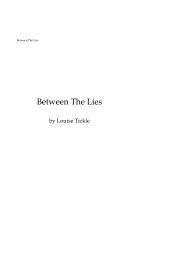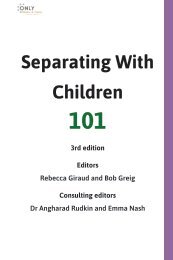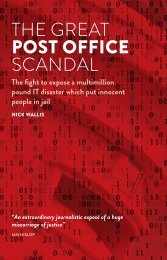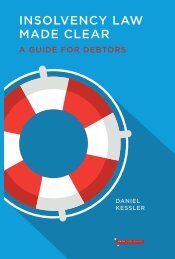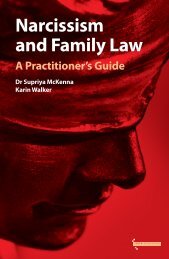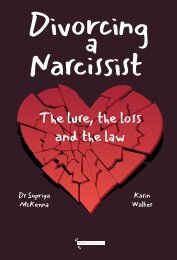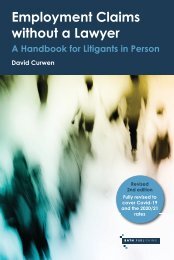The 'Secret' Family Court: Fact Or Fiction?
For approaching two decades, family courts have been accused of making life changing decisions about children and who they live with made in secret, away from the scrutiny of the public gaze. Recognising the force of these accusations, senior family courts judges have, over that time, implemented a raft of rule changes, pilot projects and judicial guidance aimed at making the family justice more accountable and transparent. But has any progress been made? Are there still suspicions that family judges make irrevocable, unaccountable decisions in private hearings? And if so, are those suspicions justified and what can be done to dispel them? In this important and timely new book, Clifford Bellamy, a recently retired family judge who has been at the sharp end of family justice during all these changes, attempts to answer those questions and more. He has spoken to leading journalists, judges and academic researchers to find out what the obstacles to open reporting are – be they legal, economic or cultural - and interweaves their insights with informed analysis on how the laws regulating family court reporting operate. Along the way he provides a comprehensive review of the raft of initiatives he has seen come and go, summarises the position now and uses this experience to suggest how this fundamental aspect of our justice system could adapt in the face of this criticism. Every professional working in the family justice system – lawyers, social workers, court staff and judges - as well as those who job it is to report on legal affairs, should read this informative, nuanced exposition of what open justice means and why it matters so much to those whose lives are upended by the family justice system.
For approaching two decades, family courts have been accused of making life changing decisions about children and who they live with made in secret, away from the scrutiny of the public gaze. Recognising the force of these accusations, senior family courts judges have, over that time, implemented a raft of rule changes, pilot projects and judicial guidance aimed at making the family justice more accountable and transparent.
But has any progress been made? Are there still suspicions that family judges make irrevocable, unaccountable decisions in private hearings? And if so, are those suspicions justified and what can be done to dispel them?
In this important and timely new book, Clifford Bellamy, a recently retired family judge who has been at the sharp end of family justice during all these changes, attempts to answer those questions and more. He has spoken to leading journalists, judges and academic researchers to find out what the obstacles to open reporting are – be they legal, economic or cultural - and interweaves their insights with informed analysis on how the laws regulating family court reporting operate. Along the way he provides a comprehensive review of the raft of initiatives he has seen come and go, summarises the position now and uses this experience to suggest how this fundamental aspect of our justice system could adapt in the face of this criticism.
Every professional working in the family justice system – lawyers, social workers, court staff and judges - as well as those who job it is to report on legal affairs, should read this informative, nuanced exposition of what open justice means and why it matters so much to those whose lives are upended by the family justice system.
Create successful ePaper yourself
Turn your PDF publications into a flip-book with our unique Google optimized e-Paper software.
Introduction<br />
Act has led to significant financial savings for the government. 8<br />
<strong>The</strong> process of judging public law cases also involves risk. Sanctioning the<br />
removal of a child from the care of his or her parents and ordering that he<br />
or she be placed for adoption is a Draconian order to make.<br />
Such an order changes the course of the lives of that child and his or her<br />
parents for ever. So far as the child is concerned there is no guarantee that<br />
such changes will necessarily prove to be for the better. Making a care order<br />
involves taking a risk. Equally, ordering the return to his or her parents of<br />
a child who has been removed because of concern about past harm and/or<br />
risk of future harm also involves taking a risk. If the judge’s risk assessment<br />
of the parents is flawed the judge could be returning the child to a situation<br />
in which he or she will be at real risk of harm. When that happens, here,<br />
too, there can very occasionally be tragic consequences.<br />
As I watched the Victoria Derbyshire programmes and listened to the repeated<br />
references to the ‘secret family court’ I reflected on the fact that that<br />
description has been in continuous use throughout the whole of my career<br />
as a family Circuit Judge. It has still not gone away. It continues to thrive.<br />
It continues to shape and colour the public’s view of the <strong>Family</strong> <strong>Court</strong> and<br />
to undermine public confidence in the <strong>Family</strong> <strong>Court</strong>. It has taken root in<br />
public consciousness.<br />
In the early days when this expression came to be used by the media, the<br />
public was not interested in judges seeking to give reassurance that the family<br />
court sits in private and not in secret. <strong>The</strong> public was not interested in<br />
abstract concepts of privacy and confidentiality. Encouraged by the media,<br />
the public was concerned – genuinely, and in my opinion understandably,<br />
concerned – that this was not open justice. <strong>The</strong> public were locked out.<br />
8<br />
See <strong>The</strong> impact of LASPO on routes to justice (Research Report 118) published by the Equality<br />
and Human Rights Commission in September 2018: https://www.equalityhumanrights.com/<br />
sites/default/files/the-impact-of-laspo-on-routes-to-justice-september-2018.pdf. So serious is the impact<br />
of LASPO that, according to an article in <strong>The</strong> Sunday Times on 9 February 2020: “<strong>The</strong><br />
country’s most senior family judge has urged private law firms to make regular donations to<br />
keep the crisis-hit court system functioning…Sir Andrew McFarlane, President of the <strong>Family</strong><br />
Division for England and Wales, wants law firms to fund a charity to provide support for<br />
about 160,000 people clogging up the system by appearing in court without a lawyer. <strong>The</strong><br />
charity needs extra donations of at least £1.5m a year.” <strong>The</strong> headline given to this article<br />
was Judge begs for donations to ease family court crisis. Later in this book, in Chapter 10, I am<br />
critical of the print media for sensationalising headlines and stories about the work of the<br />
<strong>Family</strong> <strong>Court</strong>. I do not consider this headline to be sensationalist or open to criticism in<br />
any way. On the contrary, to the shame of those whose responsibility it is to ensure that this<br />
country has a properly funded family justice system that is fit for purpose, this headline is<br />
both accurate and true. It is – or at least it ought to be – a wake-up call.<br />
5



